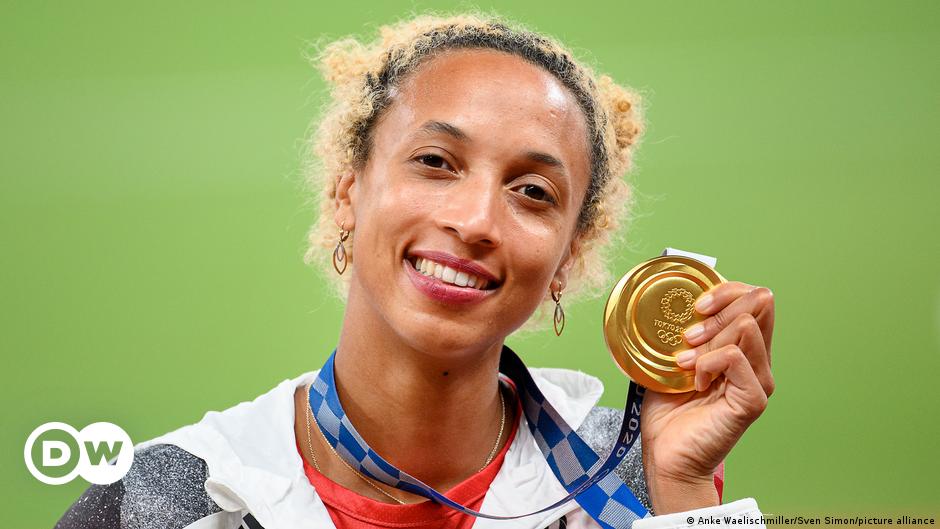World Athletics appears to have pecked a hornet's nest with the federation's recent decision to pay athletes bonuses for winning Olympic medals, sparking a global debate. Last week, track and field's governing body announced it would pay $50,000 (€46,800) for winning in each of the 48 track and field events at the upcoming Paris Summer Olympics (July 26-August 11).
The group said there would also be bonuses for silver and bronze medals at the 2028 Los Angeles Games. This is the first time in the 128-year history of the modern Olympic Games that a single-sport world federation has offered bonuses for Olympic performance.
World Athletics President Sebastian Coe said: “It's important to start somewhere and ensure that some of the revenue generated by athletes at the Olympic Games goes directly back to the people who make the Olympics a global spectacle. I think so.” Such sentiments from Coe, who won gold in the 1,500 meters at the 1980 and 1984 Olympics, risk ruffled feathers at the International Olympic Committee (IOC) and other sports governing bodies.
The cycling world is already responding through the UCI. “The spirit of the Olympics is to share the revenue and enable more athletes to compete around the world,” said president David Lapartient. “Don't just spend all your money on the top athletes. Spread your money out. If you concentrate your money on the top athletes, you eliminate a lot of opportunities for athletes around the world.”
Disparities between sports
The IOC's model is based on unity. All but 10% of the proceeds from the Olympic Games are donated to the organizations of the Olympic Movement, primarily World Sports Federations and National Olympic Committees. The IOC will use the rest to cover operating costs and the Olympic Museum in Lausanne, Switzerland.
After the 2021 Tokyo Summer Games, the IOC distributed approximately $540 million (505 million euros) to 28 world federations. World Athletics received the most money, about $40 million. At the bottom of the list were the World Associations of Taekwondo, Golf and Rugby, each with just under $13 million. In other words, economic disparities already exist between sports.
This disparity was highlighted by British rowing legend Steve Redgrave. “Most other sports won't be able to follow this. It would make this a two-step process,” he told the Daily Mail.
The ITF, which oversees tennis, also raised similar cooperation themes in response to questions from DW. The tennis federation has vowed to change its approach, if at all, only in consultation with the IOC and ASOIF, the association of federations represented by the Summer Olympics.
“The opportunity to compete for the prestige of Olympic medals was a unique and special incentive for athletes to take part in the Olympics. If any changes to this are considered in the future, any decisions will be made in consultation with governments. Summer Olympics International Federations Association and International Olympic Committee. ”
FIBA (basketball federation) will simply say, “There are no plans to introduce it.'' [Olympic] Basketball prize money. ”
The IOC, world sports federations and national Olympic committees all seemed surprised by Coe and his organization's efforts. Andy Anson, CEO of British Olympic Games, said: “The problem with this is obviously that other sports are facing some kind of scrutiny and athletes saying, “What about our sport? This is because they will be under pressure to ask, 'Why can't we do this?'
Johannes Herber, basketball player and managing director of the German Sports Players Association, said: athlete deutschlandfelt that the move to pay athletes for their medals served as a “wake-up call to the IOC and other world federations to give athletes a share of the income they ultimately generate.” However, the German Olympic Sports Federation (DOSB) reacted more calmly. Germany's sports governing body said: “It is up to World Athletics to decide how to allocate the revenue it receives from the IOC.''
Bonus on top
The DOSB supported the German Sports Aid Foundation's decision to award bonuses to athletes who placed first to eighth at the Olympic Games. sports hilfis funded by public funds, donations, lottery proceeds and charity events and has been supporting German athletes for over 50 years. According to its own figures, it plans to distribute around 23 million euros in 2024, more than ever before. In Paris, gold awards will be awarded with 20,000 euros, silver awards with 15,000 euros and bronze awards with 10,000 euros. Even if you come in 8th place, you will receive 1500 euros. This applies to all sports.
” sports hilf “The bonus also applies to track and field athletes, regardless of whether they are compensated for their success by a federation, a private sponsor or another third party,” Sporthilfe said in response to an investigation by DW. Stated. In other words, Germany's track and field winners at Paris 2024 could double. He will receive a gold bonus of 50,000 euros from World Athletics and an additional 20,000 euros from World Athletics. sports hilf To make trading more profitable.
This article has been translated from German

